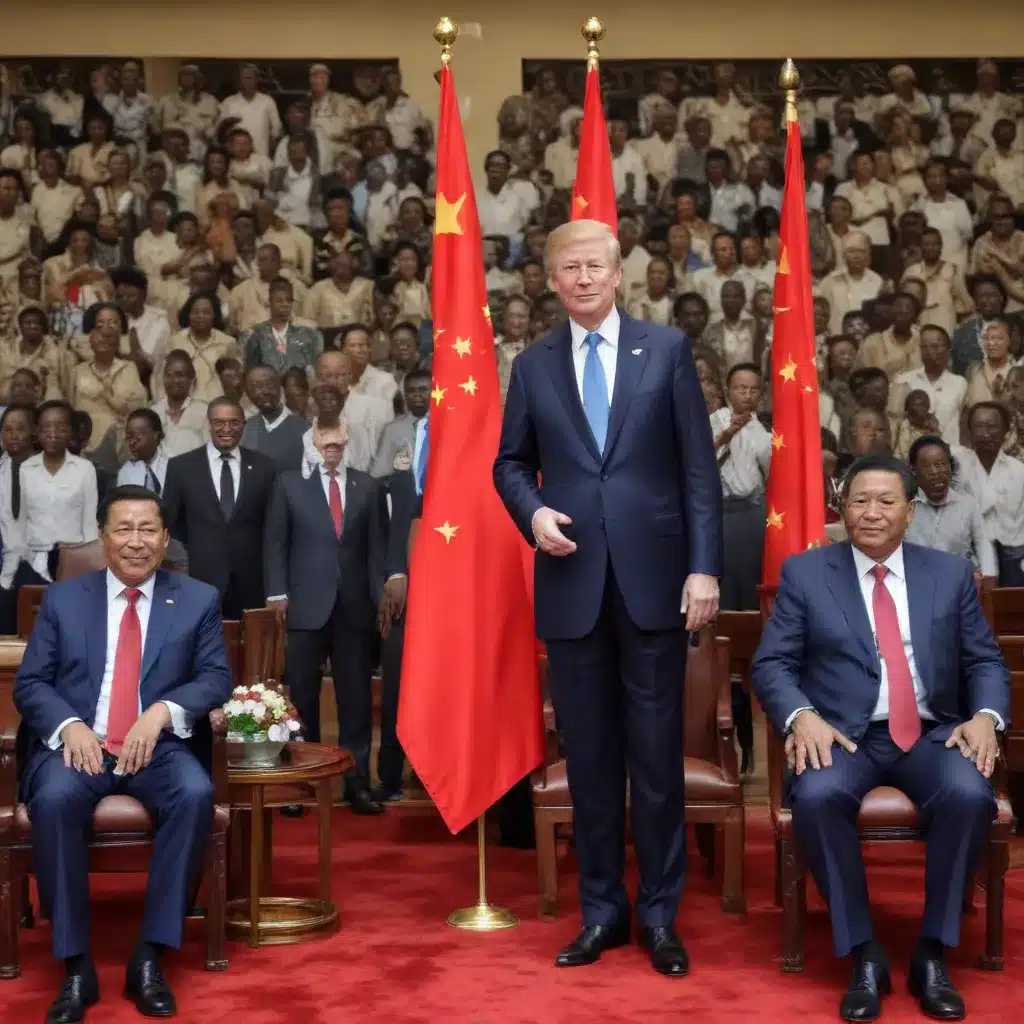
The Shifting Landscape of Sino-African Relations
China’s economic influence in Africa has been steadily growing over the past two decades, posing a significant challenge to the longstanding dominance of the United States and its allies on the continent. As the world’s two largest economies engage in a fierce rivalry for resources, markets, and geopolitical sway, Africa has emerged as a critical battleground where the future balance of power may be determined.
China’s Unprecedented Investment in Africa
In recent years, China has solidified its position as Africa’s primary trading partner and investor. At the latest Forum on China-Africa Cooperation (FOCAC) summit in Beijing, President Xi Jinping pledged $51 billion in investment through credit lines and Chinese business ventures across the continent over the next three years. This represents a 27.5% increase from the previous FOCAC meeting in 2021, underscoring China’s unwavering commitment to deepening its economic footprint in Africa.
The Chinese leader’s pledges include support for more infrastructure projects, the creation of at least one million jobs, and cooperation in areas such as industry, agriculture, trade, and investment. Notably, Xi also announced a shift towards financing industrialization in Africa, a move aimed at leveraging the continent’s low-wage economy and tapping into its vast natural resources to bolster China’s global supply chains and manufacturing capabilities.
Challenging U.S. Dominance
China’s growing economic presence in Africa is causing significant concern in Washington, as the United States grapples with the prospect of losing its longstanding influence on the continent. The U.S. has traditionally been Africa’s largest trading partner and a major source of investment, but in recent years, it has been steadily losing ground to China.
In 2023, China’s trade with Africa reached a record $282 billion, more than double the continent’s trade with India, its second-largest single trade partner. This shift has been driven largely by Africa’s surging exports of minerals, fuels, and metals – critical raw materials for China’s defense, renewable energy, and electric vehicle industries.
Recognizing the strategic importance of Africa’s resources, the U.S. has sought to counter China’s growing influence through initiatives like the Partnership for Global Infrastructure and Investment (PGII), which aims to deploy over $600 billion in development financing by 2027. However, these efforts have been widely seen as lacking the scale and appeal of China’s Belt and Road Initiative (BRI), which has already resulted in significant infrastructure investments across the continent.
Debt Diplomacy and the Struggle for Control
One of the primary concerns raised by the U.S. and its allies regarding China’s engagement in Africa is the potential for “debt diplomacy,” whereby Beijing lures countries into taking on unsustainable levels of debt that can then be leveraged to gain political and economic concessions. Several African nations, including Ethiopia, Zambia, and Kenya, have already struggled to repay loans for major infrastructure projects financed by China.
In response, China has sought to restructure its loan portfolio in Africa, engaging in debt renegotiation and relief with countries in distress. This shift, along with China’s support for initiatives like the Pan-African Payment and Settlement System (PAPSS), which allows for the settlement of intra-African trade in local currencies, suggests that Beijing is seeking to deepen its economic ties with the continent while reducing its reliance on the U.S. dollar and the broader Western-dominated financial system.
The Geopolitical Implications of China’s Ascendancy
Beyond the economic sphere, China’s growing presence in Africa also has significant geopolitical implications. The country’s investments in strategic infrastructure, such as ports and railways, have raised concerns about China’s potential to enhance its military capabilities and project power throughout the region.
The establishment of China’s first overseas military base in Djibouti, as well as its investments in ports along the African coastline, have heightened tensions with the U.S. and its allies, who view these developments as potential threats to their own security interests and global influence.
Moreover, the 54 votes that Africa’s countries hold in the United Nations General Assembly provide China with a valuable counterweight to the domination of U.S. imperialism on the global stage. As Beijing continues to deepen its political and economic ties with African nations, it may be able to harness this voting bloc to advance its own geopolitical agenda, potentially undermining the U.S. and its Western allies.
Navigating the Shifting Tides of Global Power
The shifting balance of power between China and the United States in Africa is a complex and multifaceted issue, with significant implications for the future of the continent and the global order. As the two superpowers engage in a fierce competition for influence, African nations must navigate this landscape with caution, seeking to maximize the benefits of their relationships with both parties while mitigating the risks of becoming embroiled in a new era of great-power rivalry.
For the IT professionals and technology enthusiasts who form the core readership of the IT Fix blog, the rise of China’s economic clout in Africa presents both opportunities and challenges. On the one hand, the expansion of Chinese infrastructure and investment in the region could lead to increased technological cooperation and the adoption of innovative, “green” solutions. However, the potential for debt traps and political interference could also create instability and disrupt the smooth functioning of critical IT systems and infrastructure.
To stay informed and prepared, IT professionals should closely monitor the evolving situation in Africa, paying particular attention to geopolitical developments, infrastructure projects, and the shifting patterns of trade and investment. By understanding the broader context, IT professionals can better position themselves to advise clients, develop resilient IT solutions, and capitalize on the emerging opportunities in this dynamic and rapidly changing landscape.
Ultimately, the future of Sino-African relations will have far-reaching implications for the global balance of power, the global economy, and the technological landscape. As the battle for influence in Africa continues to unfold, IT professionals must remain vigilant, adaptable, and attuned to the latest trends and developments to best serve their clients and communities.












